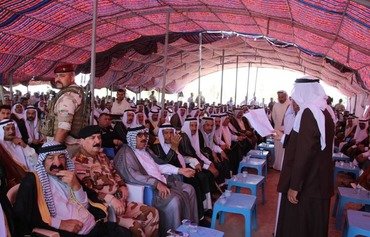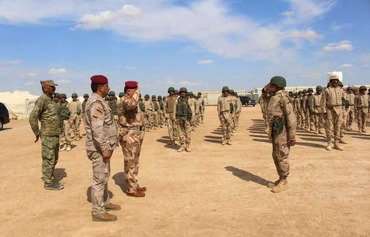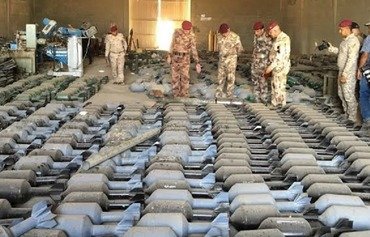The Iraqi government plans to increase the number of local fighters enlisted in the tribal forces in Anbar province, a tribal official said on Wednesday (June 19th).
"The government will beef up the ranks of tribal forces in the province, which currently stand at about 10,000 fighters," Anbar tribal forces leader Sheikh Qatari Samarmad al-Obeidi told Diyaruna.
Of those, about 7,500 fighters are enlisted in eastern Anbar districts such as Ramadi and Fallujah, while 2,500 fighters are in the western districts of the province such as Heet, Haditha and al-Qaim, he said.
"These fighters are officially part of the tribal mobilisation forces and receive monthly salaries and carry out security missions to tackle terrorist remnants and support the army and police in various sectors of responsibilities," he added.
"There are 4,000 other fighters who are part of what is known as the 'B list'," al-Obeidi said.
The "B list" includes "elements who have previously received military training and hold administrative orders designating them as official fighters, but have not been entered into the tribal forces and are not paid salaries", he explained.
The government plans to enlist those in the ranks of Defence Ministry forces, he said, adding that they will be known as the "defence mobilisation" forces.
Their wages will be paid from the ministry's budget, al-Obeidi said, and will be covered from the payments that used to go to members of the Iraqi Sahwa forces.
'Necessary move'
Enlisting those fighters is "a necessary move to enhance security" in the province, he said, noting that local forces are capable of helping security forces secure the vast desert and western border, and to deflect terrorist threats from the cities.
"Tribesmen know their regions and have gained combat experience during their fight with the terrorists. Therefore, enhancing their security contributions is a step in the right direction," al-Obeidi said.
The tribal forces are today actively participating in ongoing campaigns to track down "Islamic State of Iraq and Syria" (ISIS) remnants.
"Troops from the army's 7th and 8th divisions, supported by tribesmen, have killed 12 terrorists in security operations over the last two weeks in the desert of al-Mahboubiya near al-Tharthar Lake and in Wadi al-Halkoum south of al-Qaim," he said.
These operations have also led to the destruction of 11 militant hideouts, including rest-houses, shelters and equipment and weapon caches, he said.

![Anbar tribal fighters during a campaign to search for ISIS elements hiding in the desert north of al-Qaim. on June 14th. [Photo courtesy of the Upper Euphrates tribal force]](/cnmi_di/images/2019/06/19/18598-iraq-tribal-forces-600_384.jpg)







The registration of my name.
Reply1 Comment(s)